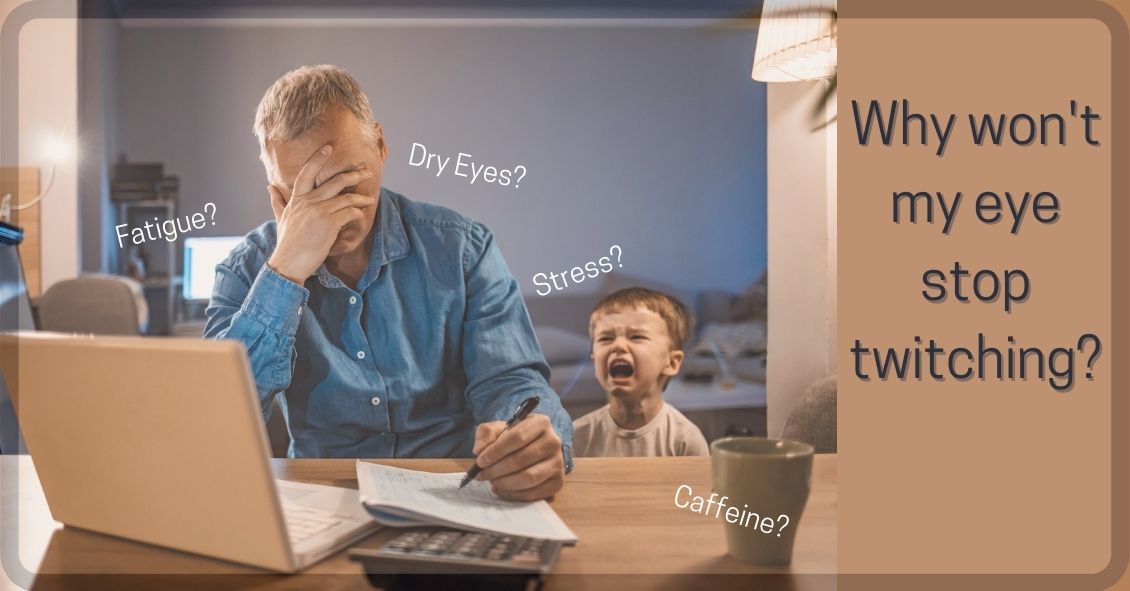
Have you ever felt a twitching sensation in your eye? Were you sure everyone was looking at you because of it? Worried that it was the beginning of a big problem?
Relax, it’s not likely to be a big deal. Most of the time it is not even visible to other people.
First, it’s almost never your actual eyeball that is twitching; it’s your eyelid muscle. Actual eye twitching is fairly rare and your vision would be pretty blurry if that's what was really happening.
The eyelid has a muscle in it that closes the eyelid and that muscle has a very high concentration of nerve innervation. Because of that dense nerve tissue in the eyelid, anything that makes your nervous system a little hyped up or off kilter can result in the eyelid twitching.
What are some of the risk factors for eyelid twitching?
Fatigue
Not getting enough sleep can result in your nervous system not performing at its best and one of the results of that may include twitching of your eyelid. If you are getting frequent eyelid twitching, try to make sure you are getting the proper amount of sleep.
Caffeine
Too much caffeine can certainly overexcite your nervous system and result in frequent eyelid twitching. If eyelid twitching is becoming something you experience frequently, it might be time to cut down your caffeine intake. While coffee tends to be the biggest offender, caffeine does come in other flavors. Tea, cola soda, and chocolate are the easy ones that come immediately to mind. Other items that you don’t think of as much: ice cream (especially chocolate or coffee flavors), de-caffeinated coffee (still has some caffeine), power or energy bars, non-cola soft drinks (Mountain Dew, Dr. Pepper, some root beers) and some OTC pain relievers (Excedrin Migraine, Midol Complete, and Anacin).
Stress
This is a hard one to quantify but if I ask most people who come to me with a complaint of eyelid twitching if they are under more stress than usual the answer is almost always, YES. This is not an easy thing to mitigate. You may need to seek some help from your internist or psychiatrist or you could try some home remedies like long baths or whatever helps you relax.
Dry Eyes
One of the first things I tell people suffering from eyelid twitching is to use a lubrication drop in their eye. Anything that irritates your eye may result in eyelid twitching and an OTC lubricating drop in the eye might decrease the eyelid twitching. It is certainly worth a try.
What if the twitching won’t go away? Could it be anything more serious?
There is a condition called essential blepharospasm that could cause frequent twitching of the eyelid. In this condition you don’t just feel the lid twitching, but the entire eye starts closing involuntarily like you are trying to wink at someone. This can start to interfere with your normal daily life and can make things like driving and reading difficult to do. If the lid closing gets that significant, the main treatment for it is Botox injection to weaken the muscle that closes the eyelids. This stops the lid twitching very effectively, but it often needs to be repeated every 3 or 4 months.
Most of the time, eyelid twitching just goes away on its own as mysteriously as it came. If you experience twitching that doesn’t go away, try making some of the modifications I mention above and if that doesn’t work you should schedule an exam.
Article contributed by Dr. Brian Wnorowski, M.D.




